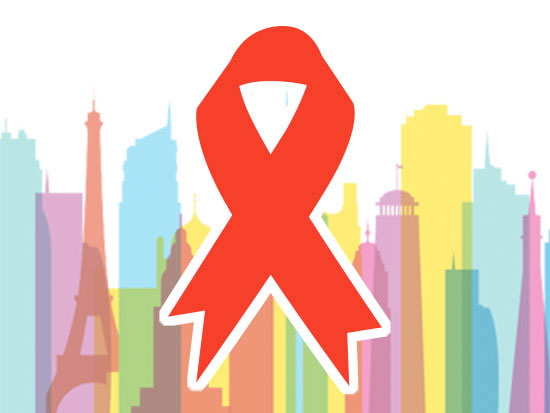 The fight to end the spread of AIDS is a focus of organizations throughout Birmingham with the signing of the Paris Declaration in August. The University of Alabama at Birmingham celebrates World AIDS Day on Thursday, Dec. 7, with an informational session on how Alabama can achieve the 90-90-90 goal by 2030.
The fight to end the spread of AIDS is a focus of organizations throughout Birmingham with the signing of the Paris Declaration in August. The University of Alabama at Birmingham celebrates World AIDS Day on Thursday, Dec. 7, with an informational session on how Alabama can achieve the 90-90-90 goal by 2030.
“Currently, almost 40 percent of all individuals infected with HIV in Alabama are still not suppressed, meaning their virus is not under complete control with medication,” said Jeanne Marrazzo, M.D., director of the UAB Division of Infectious Diseases and co-director of the UAB Center for AIDS Research. “Our partnership with the City of Birmingham, public health and community-based organizations forms a dynamic working group that will tackle this challenge, and work on other aspects of improving the quality of life for Alabamians living with or at risk for HIV.”
Marrazzo and Aadia Rana, M.D., associate professor in the UAB Division of Infectious Diseases, will present the “Pathway to Achieving the 90-90-90 Goal in Alabama” at 12 p.m. in the DoubleTree by Hilton Hotel Ballroom followed by an information fair to learn more about area partners and organizations. The informational session will address critical aspects about the HIV epidemic in Alabama, including the strategies that are working, populations that are not being served sufficiently or at all, improvement of access to HIV care and knowledge of available services, and community assets, resources and programs necessary to achieve these goals.
Working to achieve the goals of the Paris Declaration aligns the mission of the UAB Center for AIDS Research with strategic planning for the public health of Alabama. A plan to achieve these targets will require a broad strategy, including improving access to care; enhancing prevention, treatment and research opportunities; improving social and economic justice by eliminating discrimination and stigma; fostering community collaboration to achieve parity, inclusion and representation; and identifying, evaluating and applying for alternative sources of funding to maximize long-term sustainability.